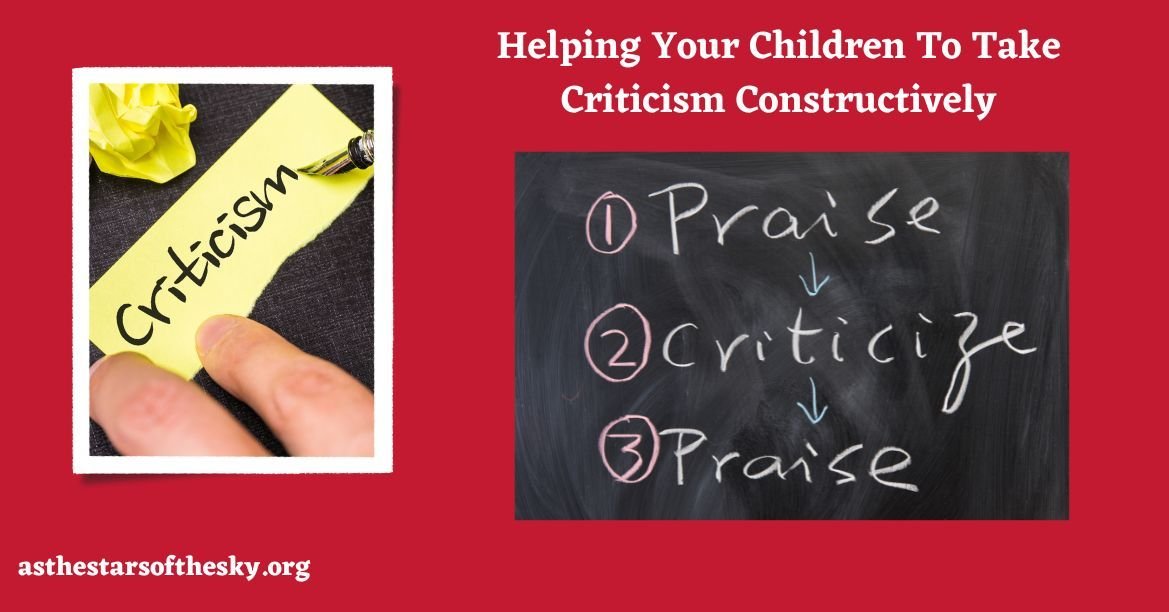Proverbs 15:32 instructs us: “If you reject discipline, you only harm yourself; but if you listen to correction, you grow in understanding.” (NLT) That is easier for most adults to accept and understand than children. Criticism is too common nowadays. In this blog post, I would like to discuss ways that parents can help their children to learn to become better receivers of criticisms and take them constructively rather than personally.
When parents give criticism to children, we should do all we can to deliver it with love, patience, and understanding as this will help them to better understand and accept what is being said. Our goal is not to be cruel but rather to correct or improve a behavior. Be honest and straightforward about the unacceptable behavior and do not make it personal to the child. Ensure that your children understand the reprimand. Look for ways to praise them for other things that they do as well. It will go a long way if you phrase your criticism with love.
When others criticize our children, we are usually not there to help them handle the emotions involved. But what parents can help their children with at home is to learn not to accept criticism personally, no matter who gives it to them. In an online article titled Helping Kids Take Criticism Constructively (Even When It Isn’t Constructive), author Jessica Lahey suggests that we help our children to adopt the “growth mindset” which focuses on what a person does rather than who he is. She writes that “kids with a growth mindset will be able to focus on their own effort and progress rather than the expectations and limitations other people place on them.” Your children can learn to turn criticism around and rephrase it in their minds so that they do not take the criticism as a personal attack and adversely react.
Parents can teach the “growth mindset” by doing the following:
•Offer feedback. Don’t try to protect your children from criticism or pain but instead help them to listen and understand feedback. Help them to rephrase it so that it is not personal.
•Don’t offer constant praise.
•Empower them for change by helping them to look forward. Ask questions such as “How do you think you could have done better with this project?”
•Assist them in forming new goals in moving forward. Importantly, the goals should be those of your children, not you.


